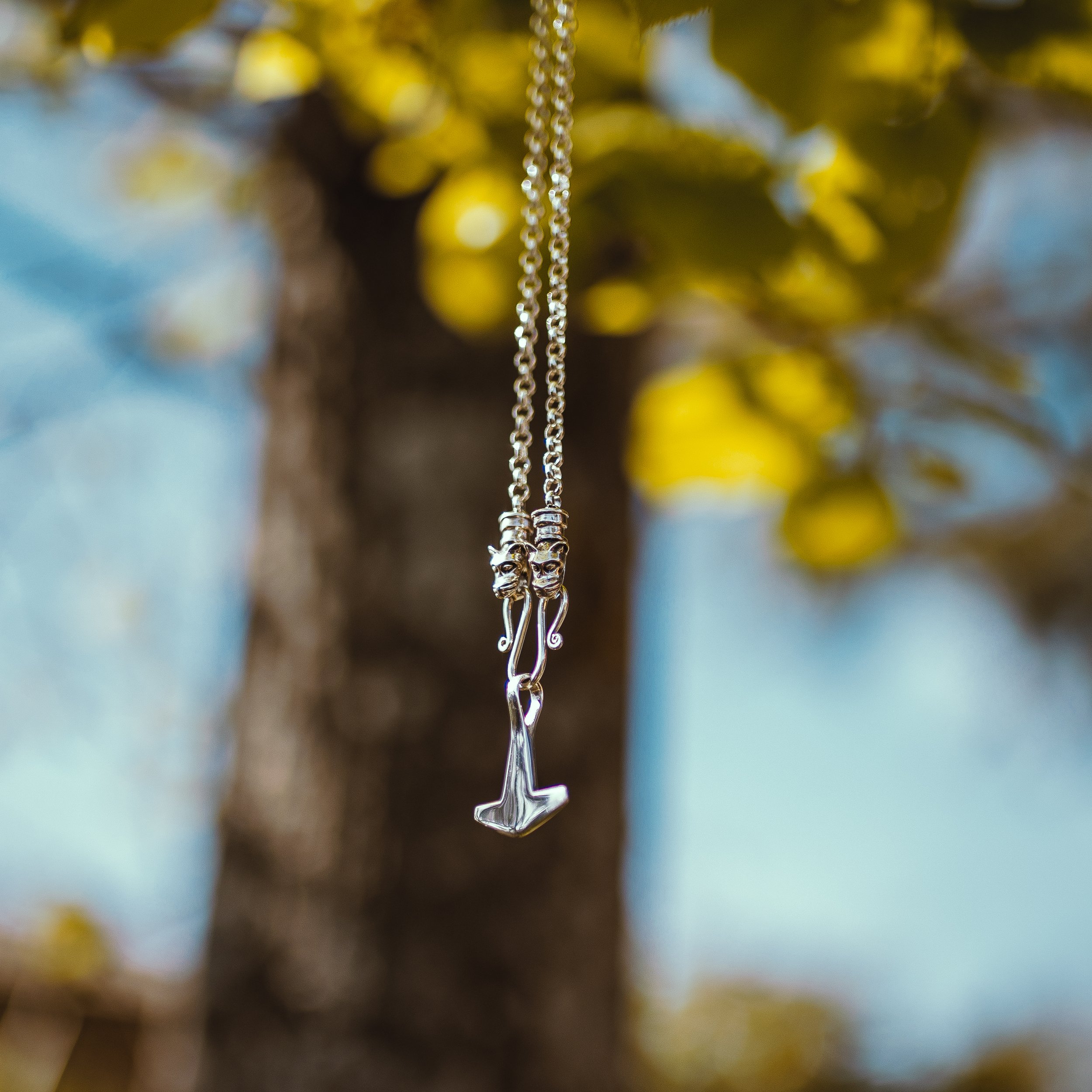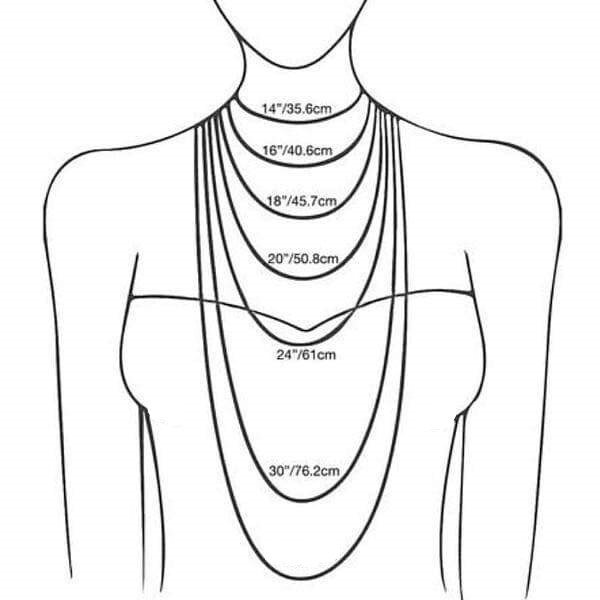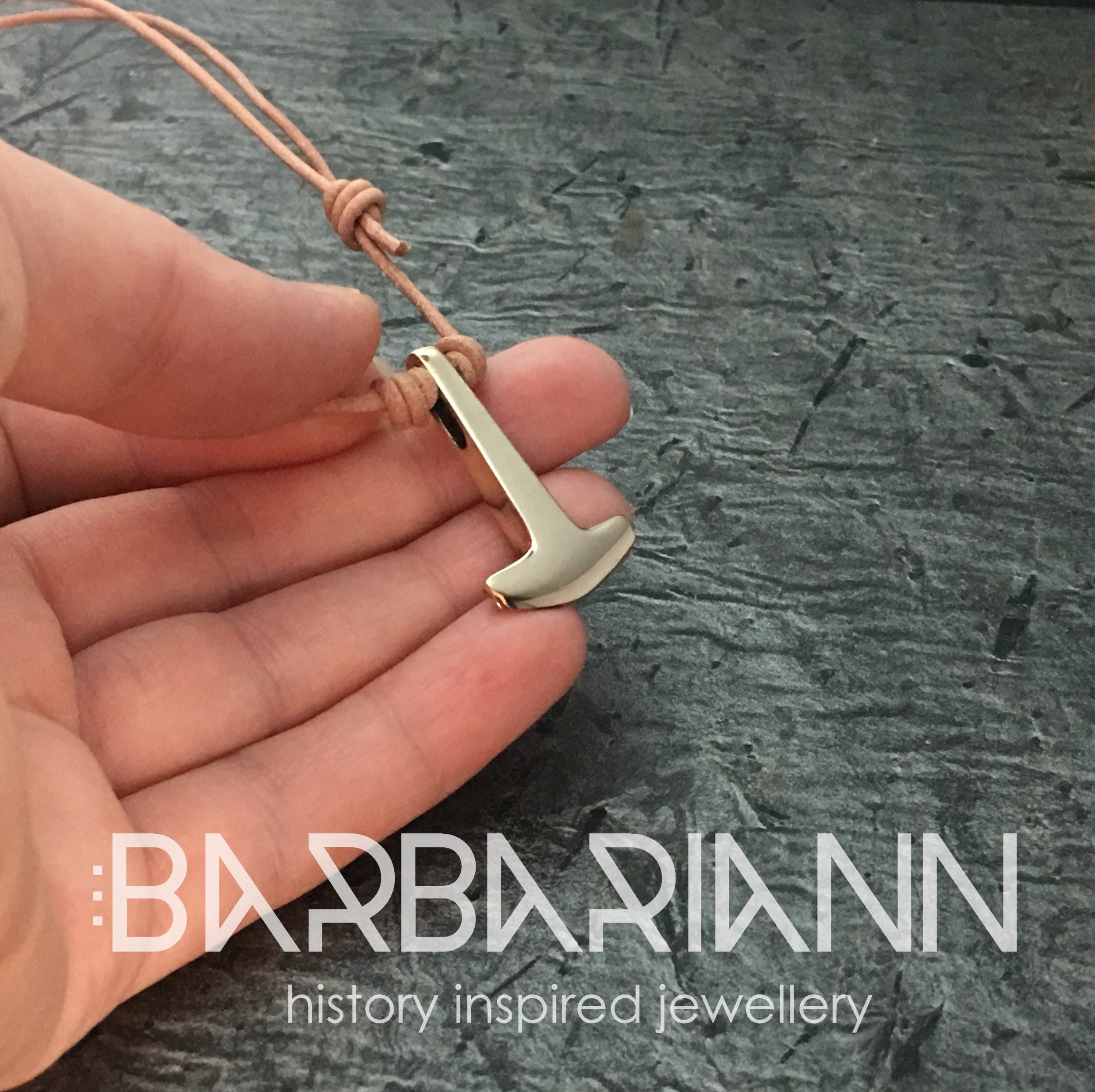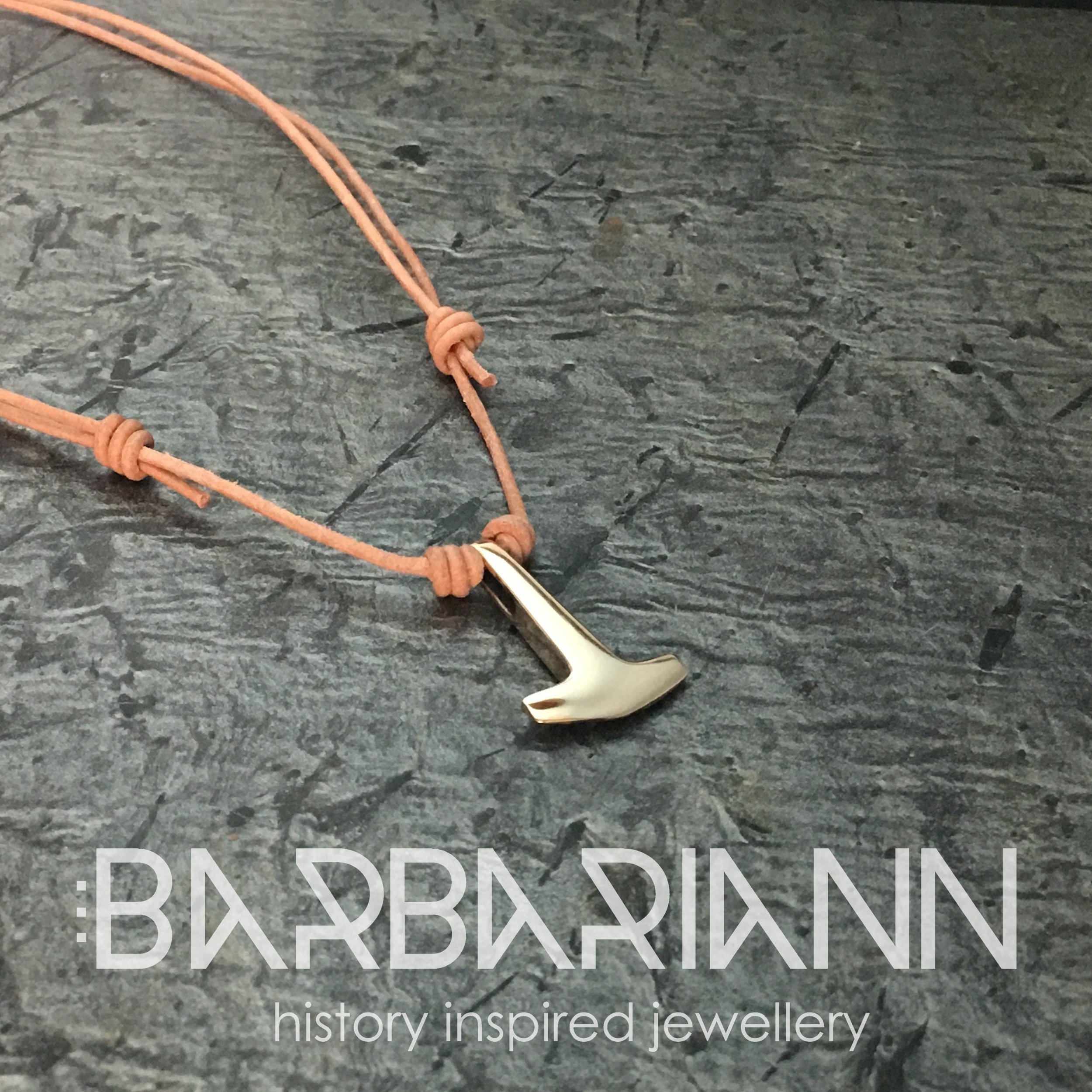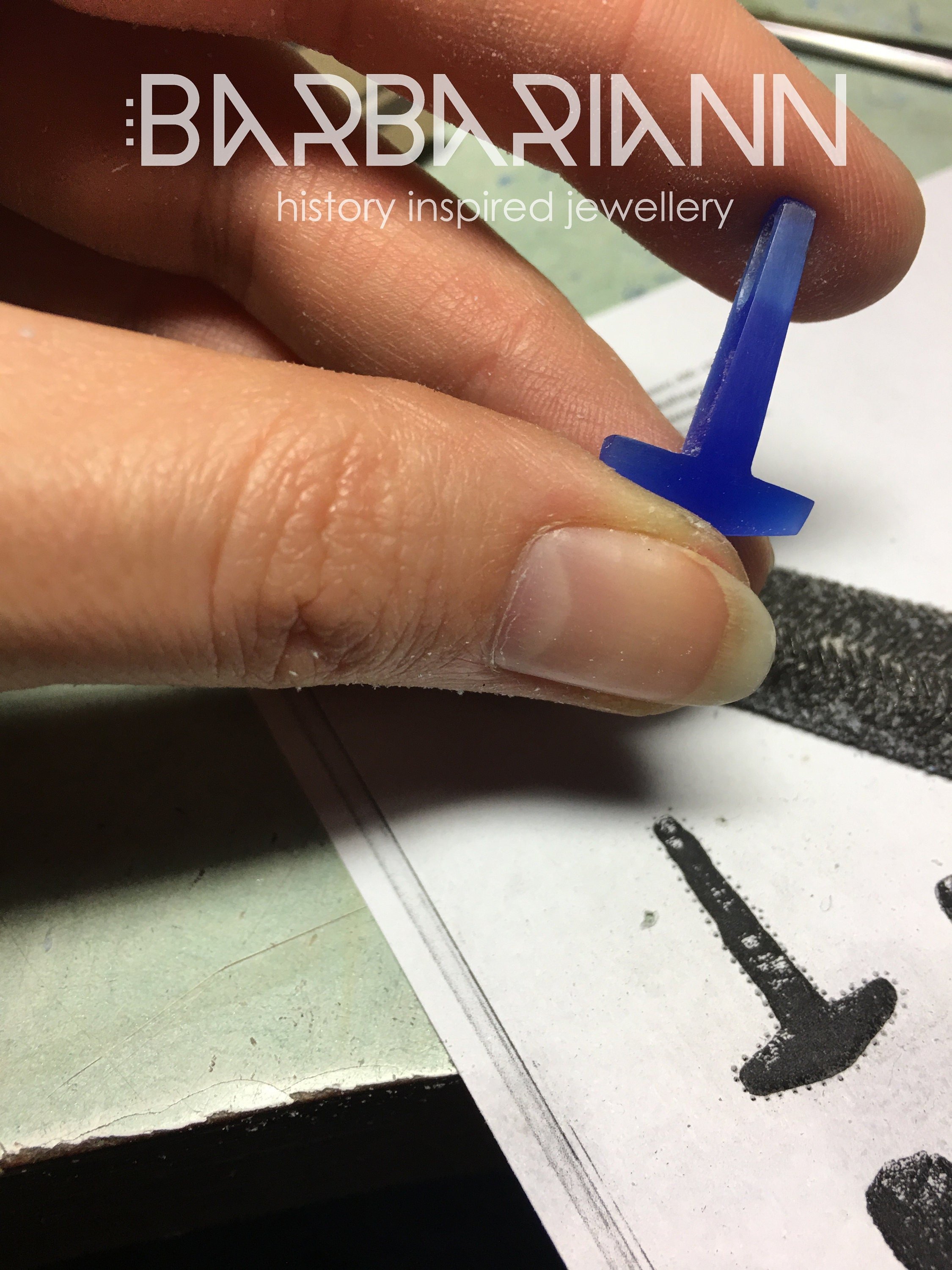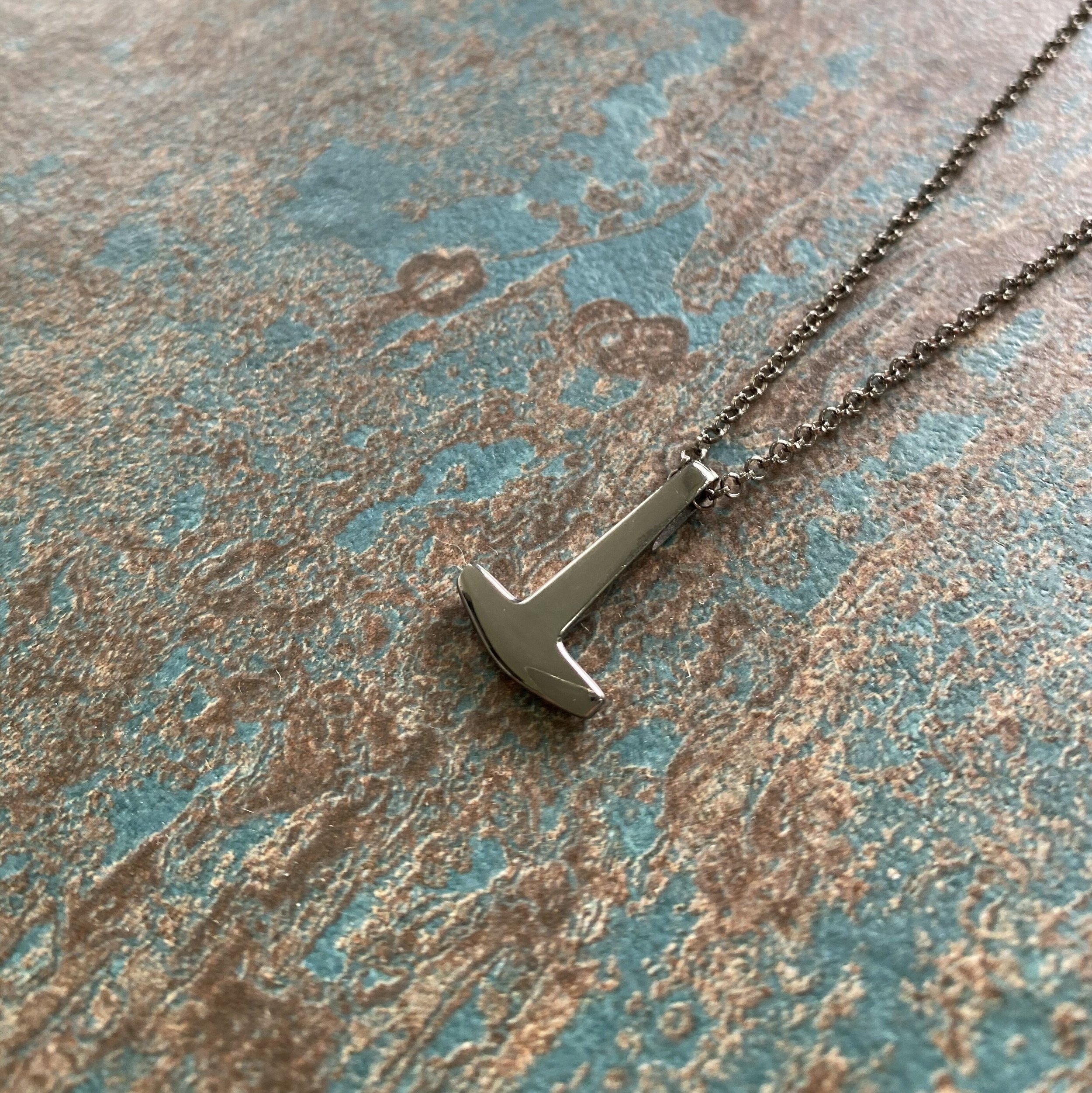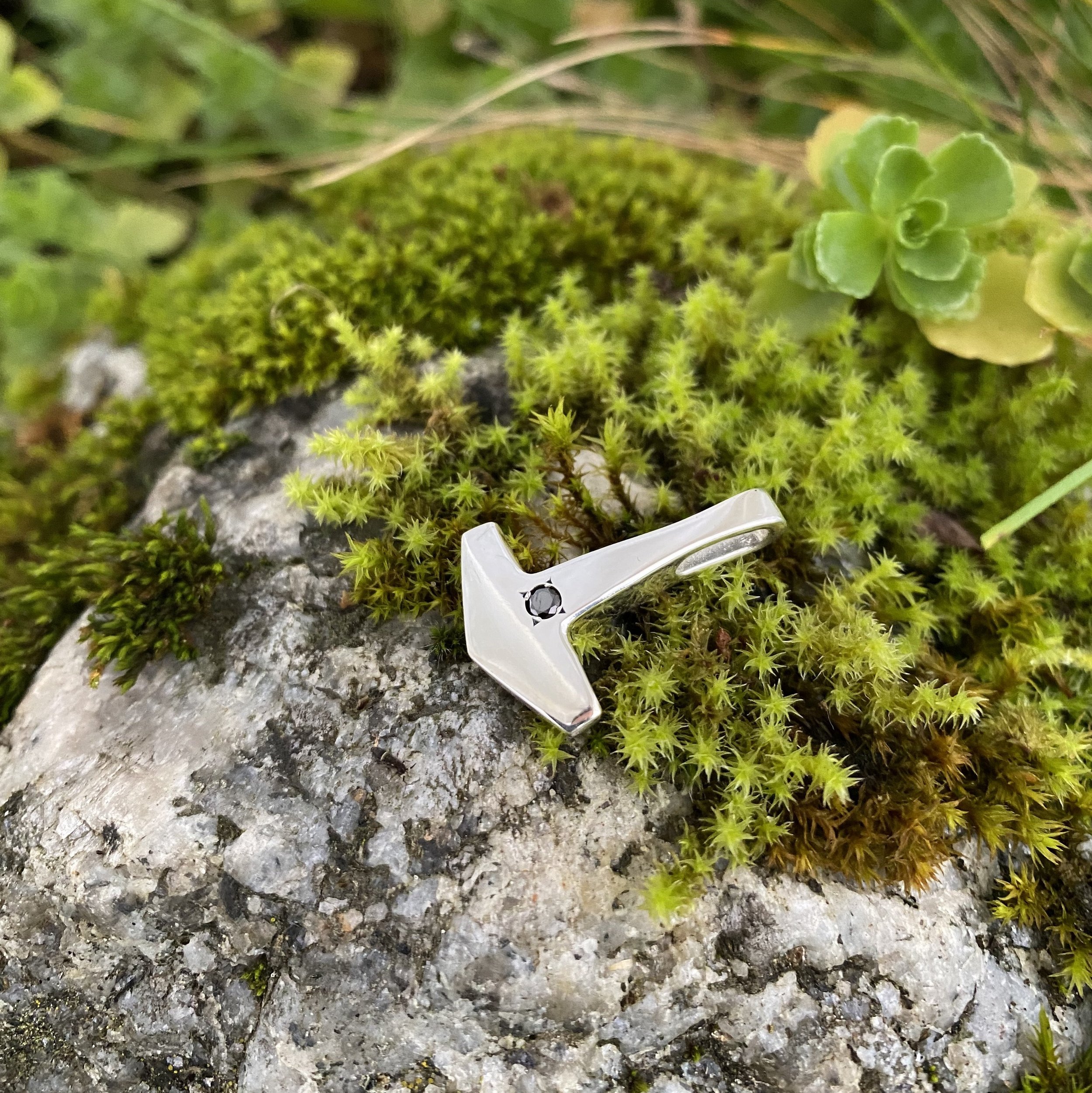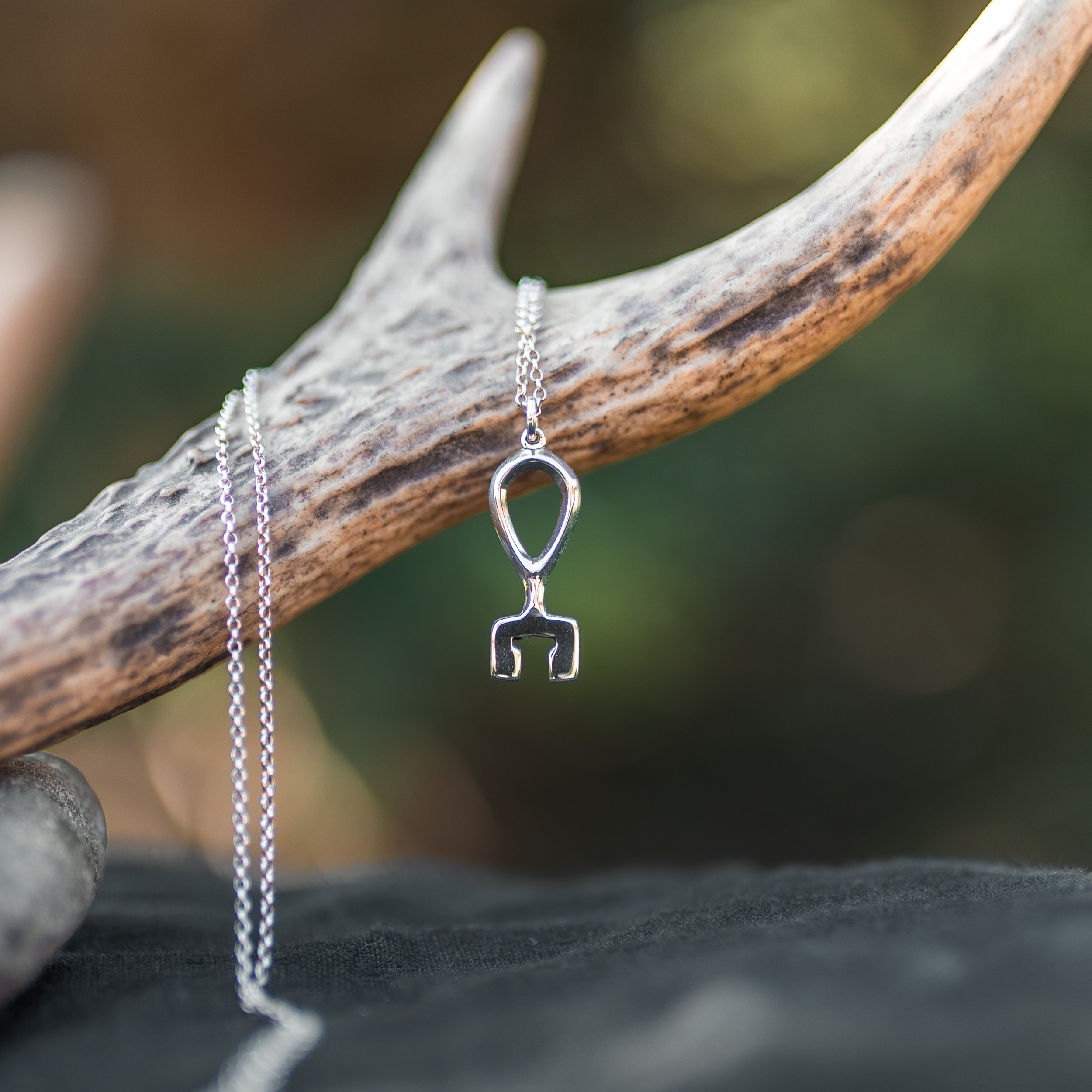 Image 1 of 4
Image 1 of 4

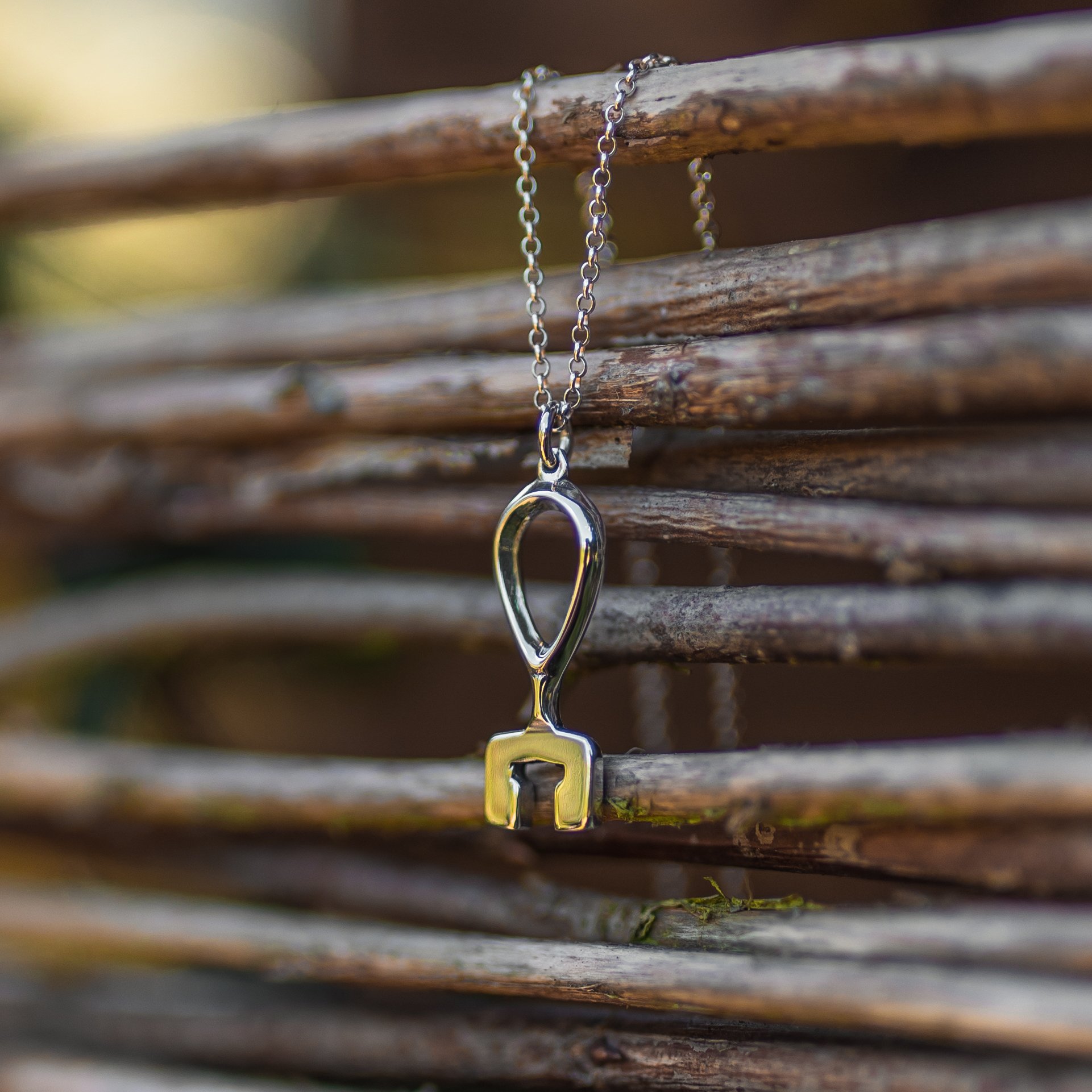 Image 2 of 4
Image 2 of 4

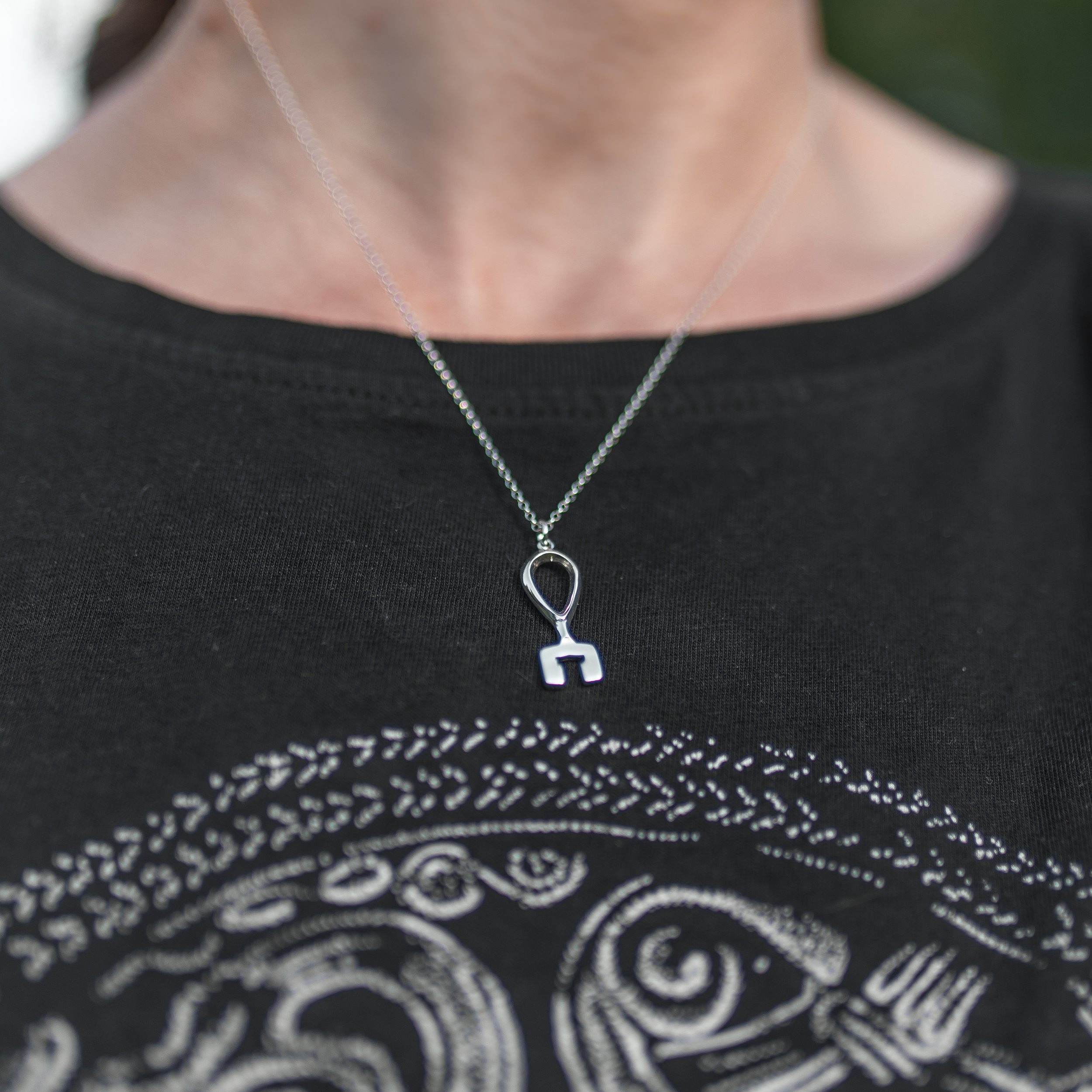 Image 3 of 4
Image 3 of 4

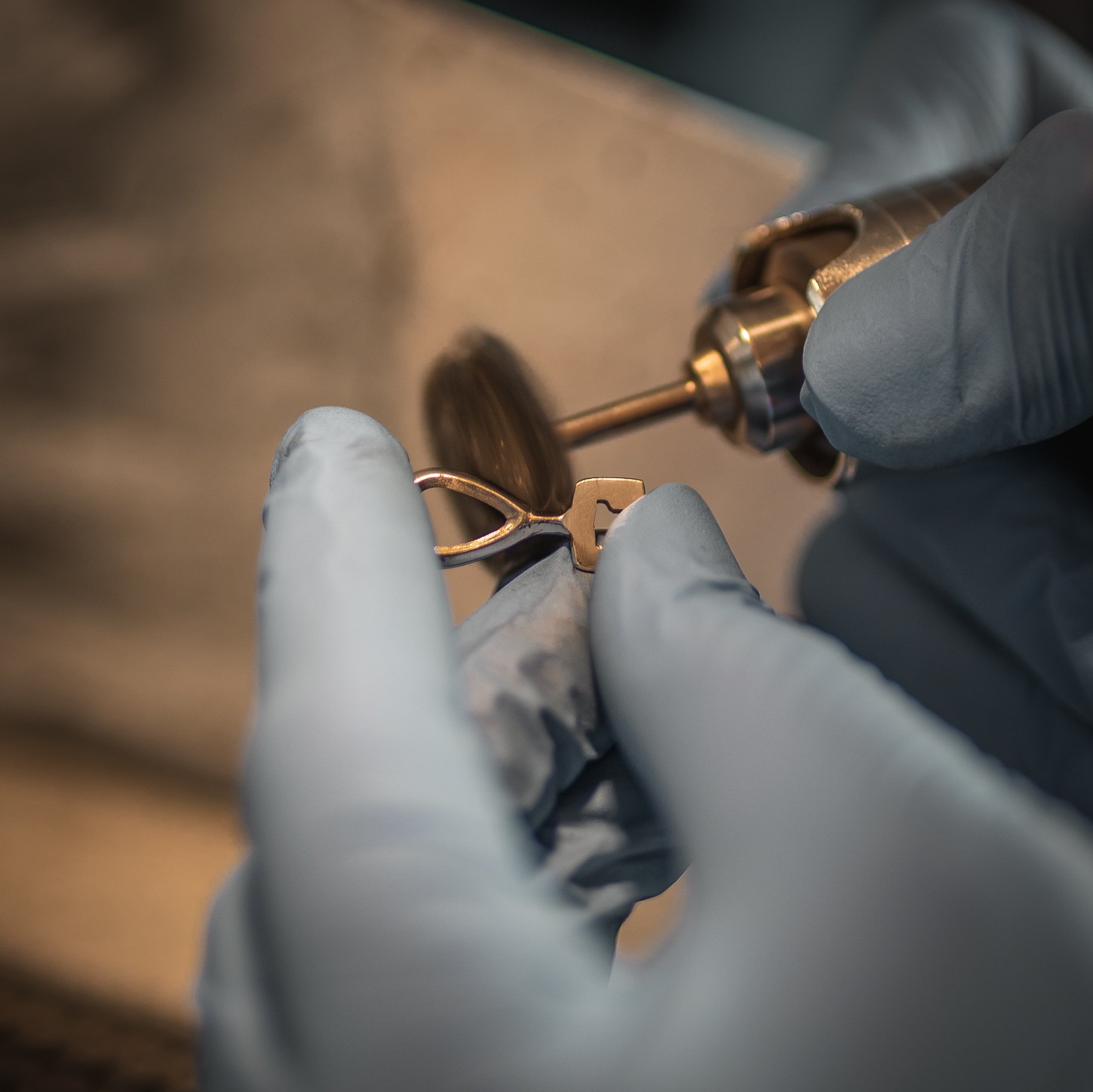 Image 4 of 4
Image 4 of 4





Husfreyja Sterling Silver Viking Key
Sterling silver viking key necklace, based on an archeological find from Gotland, Sweden.
Keys had an important symbolical significance in the Viking age. A token of ownership, responsibility and possession, keys were often worn by Free Women who were the Lady of The House (Husfreyja - the name of our pendant).
The lady of the house would wear the keys to the lockboxes on her clothing and would be leading the household when the man was away on hunts, travel or war and raiding activities.
She would also gain full control of inheritance in case of her father's death or in case she would be widowed.
Many keys that were found were actual keys, used to open locks, but numerous finds of Symbolic Keys, with no signs of actual use and sometimes not even functional, suggest that the key was an important symbol of a Free Woman, and would be worn as a status symbol.
We find the key to be and elegant, understated statement of female power, with a beautiful symbolic history that stretches all the way to the Viking Age.
Sterling silver viking key necklace, based on an archeological find from Gotland, Sweden.
Keys had an important symbolical significance in the Viking age. A token of ownership, responsibility and possession, keys were often worn by Free Women who were the Lady of The House (Husfreyja - the name of our pendant).
The lady of the house would wear the keys to the lockboxes on her clothing and would be leading the household when the man was away on hunts, travel or war and raiding activities.
She would also gain full control of inheritance in case of her father's death or in case she would be widowed.
Many keys that were found were actual keys, used to open locks, but numerous finds of Symbolic Keys, with no signs of actual use and sometimes not even functional, suggest that the key was an important symbol of a Free Woman, and would be worn as a status symbol.
We find the key to be and elegant, understated statement of female power, with a beautiful symbolic history that stretches all the way to the Viking Age.

